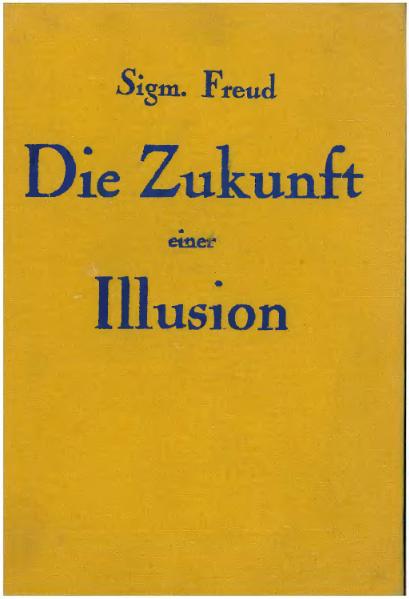
(Wikimedia Commons public domain image)
I originally published this column in Provo’s Daily Herald, back around 14 April 2000:
A widespread assumption, especially among intellectuals, holds that belief in God derives from irrational, immature needs and wishes, whereas atheism or skepticism results from a grown-up, rational, no-nonsense view of the world as it really is. The most famous statement of this position comes from Sigmund Freud, the founder of psychoanalysis, in his book The Future of an Illusion. According to Freud, religion is an attempt to cope with our cosmic helplessness by imagining a benevolent father figure in the sky. Minnesota governor Jesse Ventura recently declared that religion is for people with weak minds.
New York University psychology professor Paul Vitz disputes such notions in his book Faith of the Fatherless: The Psychology of Atheism. Vitz says that Freud’s theory reveals Freud’s own inadequate knowledge in matters of religion. The pagan faiths of the Mediterranean area, for instance, offered no benevolent father God, and major living religions such as Buddhism and Hinduism lack such a figure. Furthermore, as Vitz observes, “nowhere did Freud publish a psychoanalysis of the belief in God based on clinical evidence provided by a believing patient.” In other words, Freud’s doctrine rests not on scientific data, but on preconceptions and anti-religious prejudices. There is, in fact, growing evidence to suggest that those who lead religious lives tend to be healthier than those who do not, both psychologically and physically.
In fact, Vitz remarks, the idea that a belief might derive from childish needs or powerful unconscious wishes is a sword that can cut two ways. If, for example, one accepts the Freudian theory of the so-called “Oedipus complex,” Vitz writes, one can easily view atheism as “an illusion caused by the Oedipal desire to kill the father (God) and replace him with oneself.” Indeed, in Faith of the Fatherless, he argues that vocal or intense atheism tends to be “generated by the peculiar psychological needs of its advocates.” Among his examples is a famous French skeptic who thoroughly rejected his father, repudiated his father’s name (Arouet) in order to call himself “Voltaire,” and even wrote a play entitled Oedipus.
Vitz proposes what he terms “the defective father hypothesis” as an explanation of atheism. In an essay on Leonardo da Vinci, Freud remarked that “psychoanalysis, which has taught us the intimate connection between the father complex and belief in God, has shown us that the personal god is logically nothing but an exalted father, and daily demonstrates to us how youthful persons lose their religious belief as soon as the authority of the father breaks down.”
Vitz takes Freud at his word. He examines a representative list of prominent atheists—including Friedrich Nietzsche, David Hume, Bertrand Russell, Josef Stalin, Jean-Paul Sartre, Albert Camus, H. G. Wells, Adolf Hitler, Madalyn Murray O’Hair, Mao Tse Tung, and Sigmund Freud himself—and finds a surprisingly consistent pattern of weak, abusive, absent, despised, or dead fathers. In strong contrast, such believers as mathematician-philosopher Blaise Pascal, theologian Karl Barth, statesman Edmund Burke, John Henry Cardinal Newman, anti-slavery crusader William Wilberforce, philosopher-bishop George Berkeley (for whom the California university town is named), theologian and anti-Nazi martyr Dietrich Bonhoeffer, cultural observer Alexis de Tocqueville, religious thinker Sören Kierkegaard, writer G. K. Chesterton, theologian-musician-medical missionary Albert Schweitzer, and Jewish theologians Martin Buber and Abraham Joshua Heschel enjoyed healthy relationships with their fathers or father-substitutes.
Atheism might be dismissed as a comforting illusion, a belief unworthy of mature minds. But Vitz (himself an atheist into his late thirties) concludes, simply, that since both believers and unbelievers have psychological reasons for their positions, questions of faith have to be answered on the basis of evidence, not name-calling. Whatever our relationships with our fathers, we remain free to exercise faith, or not to. But we must wonder, with Professor Vitz, how the breakdown of the American family and the weakening of fatherhood will affect our children. Churches may have yet another reason for concern about these trends.











